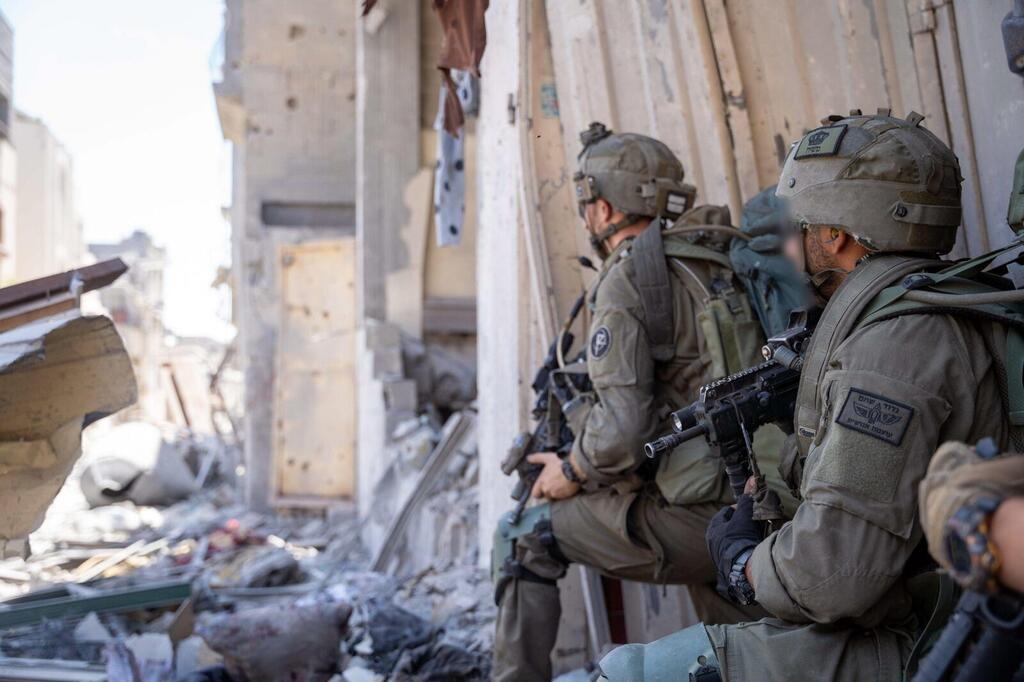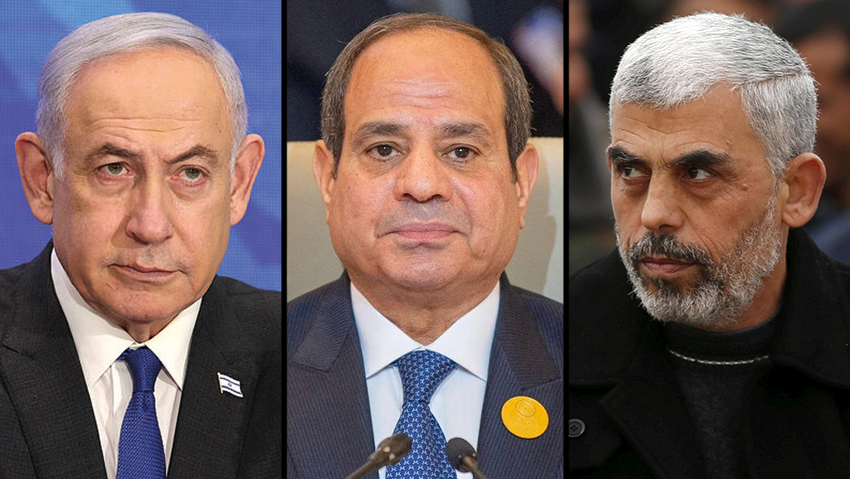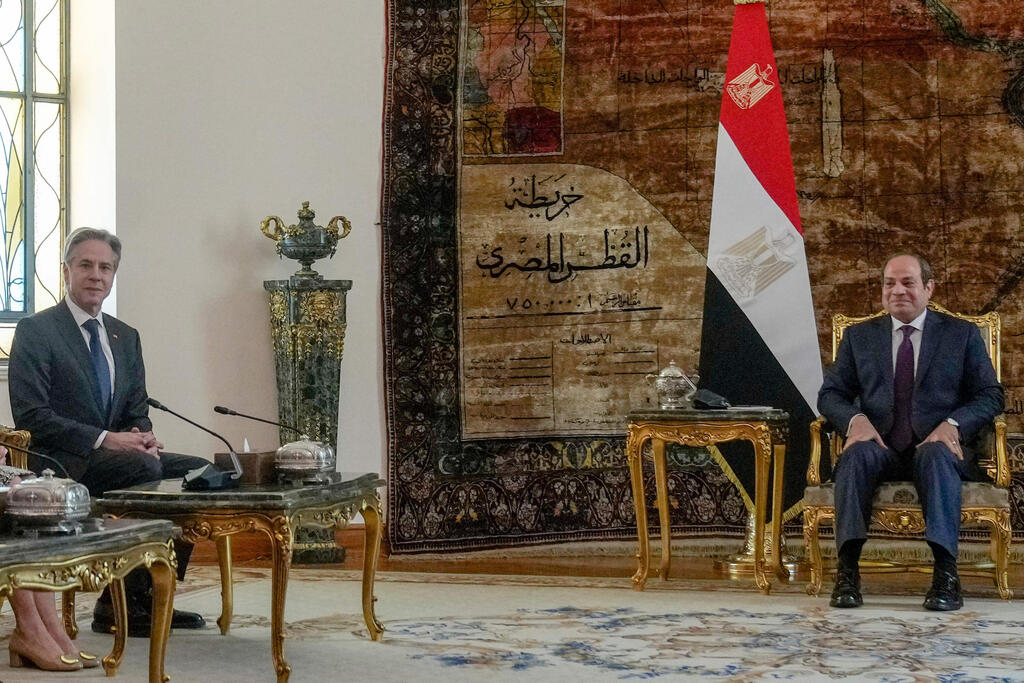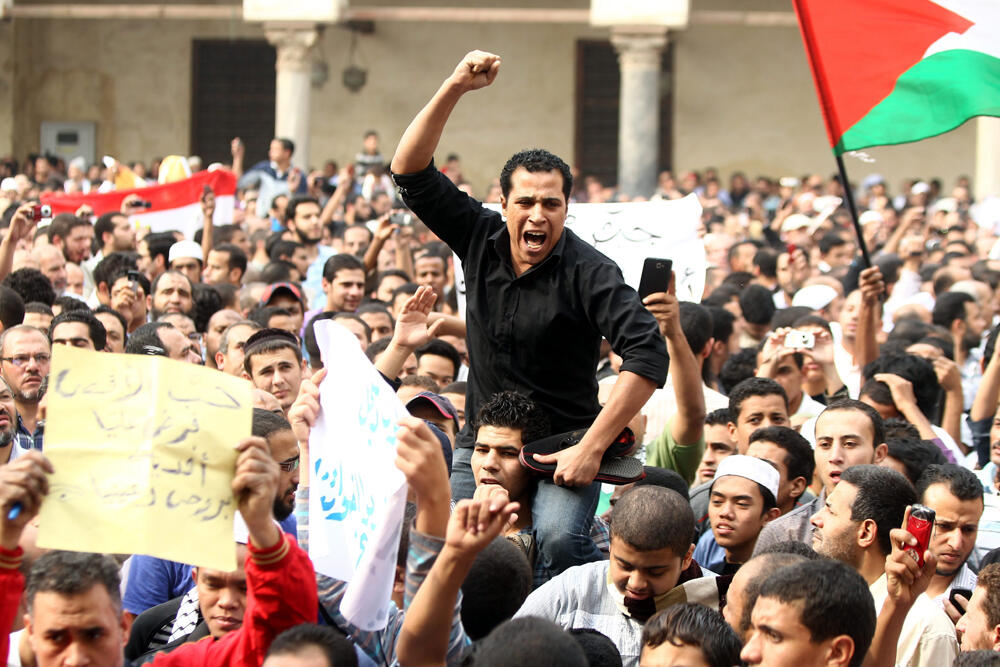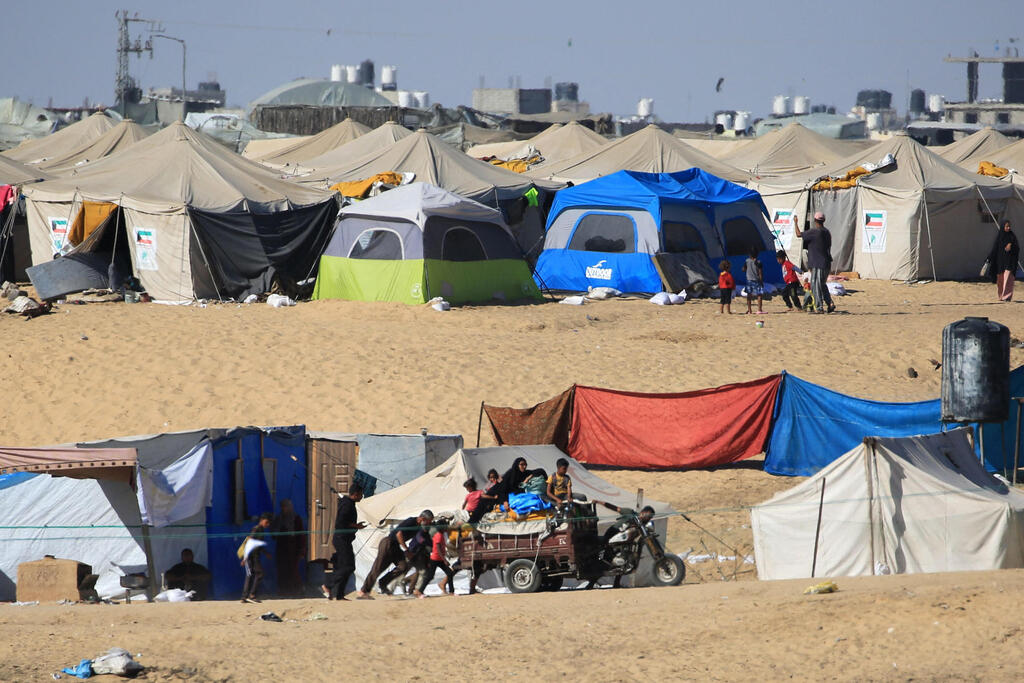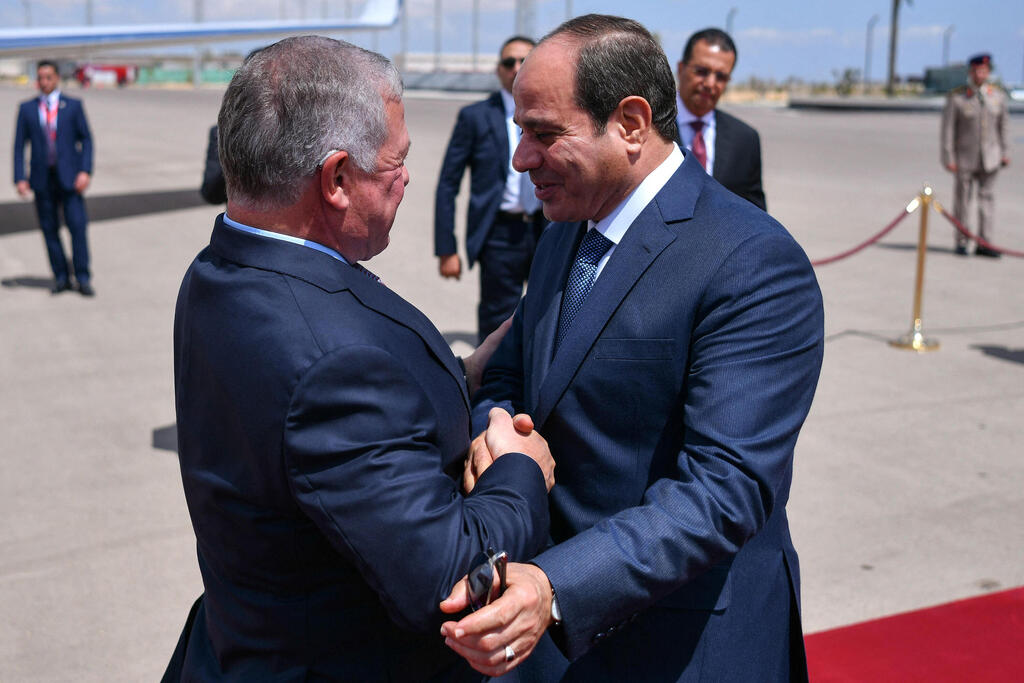Getting your Trinity Audio player ready...
The Israeli military operation in Rafah and the seizing control of the Palestinian side of the border with Egypt led to a harsh Egyptian reaction. Egypt has refused to reopen its border with Gaza, halting humanitarian aid for the Palestinians and placing full responsibility for the humanitarian assistance on Israel as the occupying force.
It also announced that it would join South Africa’s case charging Israel with genocide at the International Court of Justice in The Hague. Opinion pieces in the Egyptian media have also discussed the possibility of downgrading diplomatic relations with Israel.
This sharp response from Egypt is a result of the failure of its mediation efforts and reflects its concerns about the escalation of the war, which could lead to an influx of the Palestinian population into its territory and severely damage its interests. Above all, these statements expose the limitations of Egypt’s power and its constraints as a mediator between Israel and Hamas.
In contrast to a "neutral" mediator, which, ostensibly, lacks prior stakes in the mediation outcomes, Egypt acts as an embedded mediator. Its involvement is deeply rooted in its existing relationships and connections with the parties involved, rather than stemming from a position of detachment or objectivity. Additionally, the dynamics, progression, and outcomes of this military conflict bear significant ramifications for Egypt, impacting its domestic and foreign affairs.
Egypt’s role as a mediator in the conflict between Israel and the Palestinians is well-established, tracing back to the era of President Hosni Mubarak. During his presidency, Egypt emerged as a key, and sometimes the sole mediator. By leveraging its mediatory role, Egypt has sought to advance its national interests, enhance its regional stature, and strategically counteract Turkey’s hegemonic ambitions and Iranian influence.
This role, combined with its advocacy for a “two-state solution for two peoples,” has earned Egypt considerable respect in the international arena, especially from its ally, the United States. The benefits of serving as a mediator have been significant for Egypt, allowing it to reap benefits without incurring major political costs or jeopardizing the regime’s security and stability.
Unlike in previous instances, Egypt’s mediation role since the onset of the Gaza war carries significant risks, particularly within its domestic sphere. Therefore, Egypt’s primary aim in its mediation efforts is to advance its own interests, which include ceasing the war and re-establishing the Palestinian Authority in Gaza.
Indeed, Egypt’s role as a mediator in the Gaza conflict has conferred certain benefits both regionally and internationally. The war has offered Egypt a valuable opportunity to restore its status and relevance after a period of marginality.
Additionally, its mediation has afforded its advantages on the international stage, particularly by reinforcing its position with the American government, which regards Egypt as a moderating force and a crucial player in any settlement, as well as in the reconstruction of Gaza following the conflict. Egypt’s role as a mediator has also secured American and European economic support without it being conditioned on improvements to the country’s human rights situation.
However, unlike “neutral” mediators who use mediation primarily as a foreign policy tool to gain political capital and international prestige, Egypt’s mediation efforts are aimed at mitigating the war’s impact on itself. An analysis of Egypt’s actions since the war began highlights the dilemmas it confronts and the constraints on its responses. Its role as a mediator is focused on preventing the conflict from spilling over into its own territory and maintaining the stability of its regime.
Since the onset of the war, the potential influx of Palestinian refugees into Egypt has been considered a significant threat that could undermine its sovereignty over Sinai and pose a security risk. Collaboration between remnants of the Islamic State organization, Hamas, and factions of the Egyptian opposition, particularly the Muslim Brotherhood, could turn Sinai into a focal point for militant activities that might challenge the regime and also be directed against Israel.
Additionally, opening the border between Gaza and Egypt to allow Palestinian refugees could damage Egypt’s reputation. It could be seen as facilitating a resolution to the Palestinian issue in a way reminiscent of the Nakba, thus portraying Egypt as aligning with the interests of the State of Israel and achieving its goals. The Gaza war has also intensified economic pressures on Egypt, further straining an economy already faltering under al-Sisi's leadership. Attacks by Yemen’s Houthi rebels on ships in the Red Sea have caused diversions around the Horn of Africa, reducing the transit fees Egypt collects from the Suez Canal—a vital source of foreign currency.
These economic difficulties, which reinforce its interest in ending the war, are accompanied by the need to consider public opinion. Al-Sisi must navigate between Egypt’s interests and the sentiments and emotions of the Egyptian public, which consistently supports the Palestinian cause and harbors animosity toward Israel. This public expects and demands the Egyptian government to take active measures against Israel.
The Israeli military operation in Rafah, despite repeated Egyptian warnings, testified to the failure of Egyptian efforts and emptied Egypt’s role as a mediator of substance. Furthermore, Israel’s operation in Rafah highlighted the stark contrast in interests between Egypt and the Israeli government. Egypt, which aims to end the war and re-establish the Palestinian Authority control in Gaza, was forced to contend with the implications of Israel’s avoidance of discussing its strategy for the post-war period and the possibility of escalation and renewed concerns about an influx of the Palestinian population into its territory.
7 View gallery


Egyptian president and Qatari emir serve as main mediators
(Photo: AFP PHOTO / EGYPTIAN PRESIDENCY)
Egypt’s sharp responses to the Rafah military operation, which included stopping humanitarian aid through the Rafah crossing and joining South Africa’s genocide case before the International Court of Justice, were chosen due to their potential impact on Israel. Egypt is aware that international pressure on Israel is focused on the war’s impact on the population. It is also aware of Israel’s serious concerns about any decisions made by the International Court of Justice. Egypt used these sanctions to prevent the expansion of Israeli operations into Rafah and to signal to Israel that any sign of Israeli control in Gaza would require Israel to bear sole responsibility for the citizens.
Moreover, the supply of humanitarian aid to the Palestinians is essential for the Egyptian regime because it preserves its image as a supporter of the Palestinians and reduces internal and regional public criticism of its inaction in the face of Israeli aggression. However, continuing this aid under Israeli control at the Rafah crossing from the Gaza side might portray Egypt as complicit and cooperative with Israeli plans, suggesting that the operation in Rafah resulted from prior understandings with Israel regarding Rafah and future conduct in the Philadelphi Corridor.
 Dr. Bosmat YefetPhoto: Tali Rogev
Dr. Bosmat YefetPhoto: Tali RogevAs an involved party affected by the conflict, Egypt’s role as a mediator is intended to secure its domestic and international interests. Egypt, which has failed to bring about an end to the war through mediation, aims to achieve this by other means while maintaining its status as an active and influential player in the Israeli-Palestinian conflict. The lack of Israeli consideration for these interests may increase the measures Egypt will use to secure its interests and limit Israel’s ability to maneuver.
- Dr. Bosmat Yefet is a lecturer in the Department of Middle Eastern Studies and Political Science at Ariel University researching authoritarianism, democratization, and liberalization in the Arab world.



